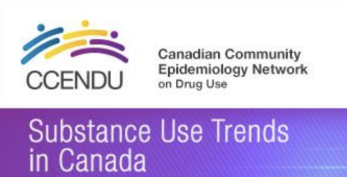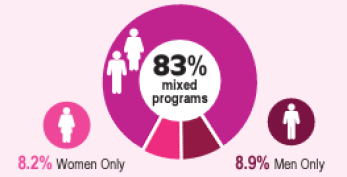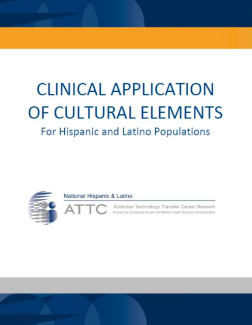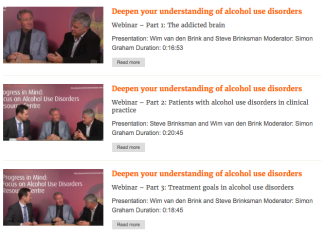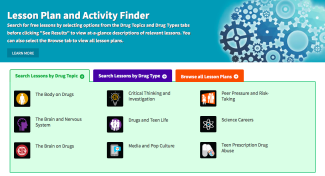Search
Treatment
Applying interventions designed to reduce and manage the symptoms of substance use disorders.
Clinical Application of Cultural Elements for Hispanic and Latino Populations
This manual is designed to teach cultural competence concepts, values, and strategies for engagement and treatment with Hispanics and Latinos with substance use disorders (SUD). The manual introduces a basic understanding of cultural...
The Growing Need to Address the Use of New Psychoactive Substances
A recent paper published in the International Journal of Drug Policy addresses the current health responses to new psychoactive substances (NPS), highlighting key issues to inform the planning and implementation of adequate responses in the...
Effectiveness Bank Matrix Bite: Managing the Talking Route to Recovery
Fortnightly instalment of online course on alcohol treatment research starts with a study which concluded that “leaders have a cascading impact on their staff in ways other than through mandate”. Findings that post-training ‘coaching’ is...
Quality of Behavioural Drug Treatment Implementation Dictates its Success
Contingency management (CM) is a widely used behavioural therapy for substance use disorders. It offers material rewards for attending sessions and adhering to prescribed medication courses, amongst other positive behaviours.
A study...
Mental Health and Synthetic Cannabinoid Use
Recently published in the journal Pediatrics, the first prospective study of synthetic cannabinoids (SCs) – chemicals that mimic the effects of marijuana – links depressive symptoms and marijuana and alcohol consumption with an increased...
A Scientific Development for the Treatment of Cocaine Addiction?
A new study published in the journal Biological Psychiatry claims that one’s desire for cocaine may be reduced by blocking signalling from a specific system in the brain primarily responsible for promoting wakefulness and appetite.
The...
Emotional Abuse during Childhood Linked to Future Opioid Use
Recently published in the journal Addictive Behaviors, a new study claims the existence of a link between childhood abuse and opioid use later in life.
According to the investigation, emotional abuse, specifically, more so than sexual or...
Limited Opportunities? Caring for People with Substance Use Disorders
ISSUP at the 60th Session of the Commission on Narcotic Drugs
Evaluating Communities That Care (CTC)
‘Community coalitions’ is a preventative strategy that coordinates activities and resources to reduce adolescent substance use and delinquent behaviour, mobilising communities in the promotion of health and prevention initiatives.
Communit...
Understanding the Brain’s Role in Drug Addiction

Findings recently revealed in Neuroscience & Biobehavioral Reviews and the Journal of Neuroscience suggest the cerebellum is co-responsible for the alterations in the brain that are linked with excessive substance abuse.
This goes...
Preventing and Treating Tobacco Use among Canadian Youth
The Canadian Task Force on Preventive Health Care has issued a new evidence-based guideline for combatting tobacco use by children and young adults aged 5 – 18, suggesting that physicians ought to have a more active role in the prevention...
Good Policy and Practice in Health Education
Booklet 10: Education sector responses to the use of alcohol, tobacco and drugs
The latest volume in the Good Policy and Practice in Health Education Series has been developed via international consultation between the United Nations...
Public Health Strategies to Prevent Neonatal Abstinence Syndrome: CDC Grand Rounds
Public Health Burden of Neonatal Abstinence Syndrome
Neonatal abstinence syndrome (NAS) is a drug withdrawal syndrome that most commonly occurs in infants after in utero exposure to opioids, although other substances have also been...
Podcast: Do Tobacco Cessation Interventions Provided during Substance Abuse Treatment or Recovery Help Tobacco Users to Quit?
Smoking rates in people with alcohol and other drug dependencies are two to four times those of the general population. Concurrent treatment of tobacco dependence has been limited due to concern that these interventions are not successful...
Effectiveness Bank Matrix Bite: The Talker in the Talking Route to Recovery
In psychosocial therapies, the enactment of the client-worker relationship is the treatment. Structured around Carl Rogers’ classic formulation of the “necessary and sufficient conditions” for therapeutic progress, the cell in the Alcohol...
Can Drug Prevention Programmes Reduce Substance Use by Participants’ Friends?
Opioids Linked to Increase in Cocaine-Related Overdose Deaths
Heroin and synthetic opioids are propelling an upsurge of late in cocaine-related overdose deaths. This is according to a national survey carried out by researchers at the National Institute on Drug Abuse (NIDA) amongst other drug...
Alcohol Use Disorders Webinar
The Progress in Mind Resource Centre held a one-hour webinar on alcohol use disorders. The webinar was delivered by Wim van den Brink, Professor of Psychiatry and Addiction at the University of Amsterdam, and Steve Brinksman, GP and...
Great Resources for Teachers
Are you a teacher? Are you looking for materials or lesson plans on the effects of drugs and drug abuse? The National Institute on Drug Abuse (NIDA) has created a great database of more than 70 teacher materials on the effects of drugs and...
Share the Knowledge: ISSUP members can post in the Knowledge Share – Sign in or become a member

